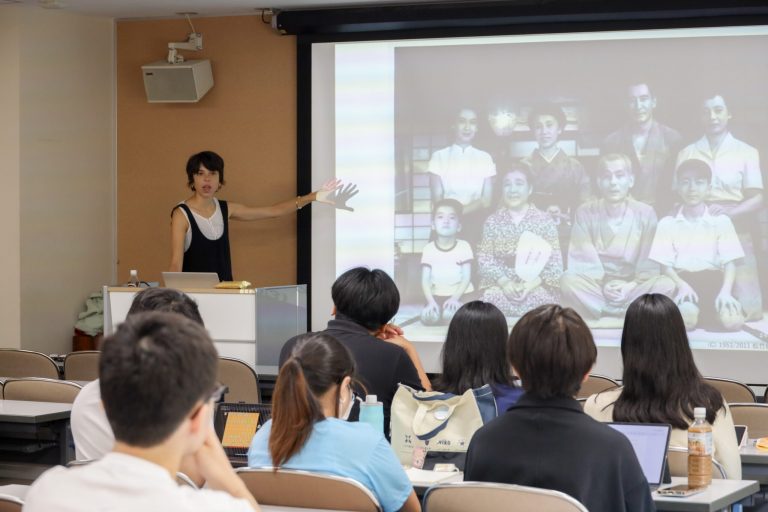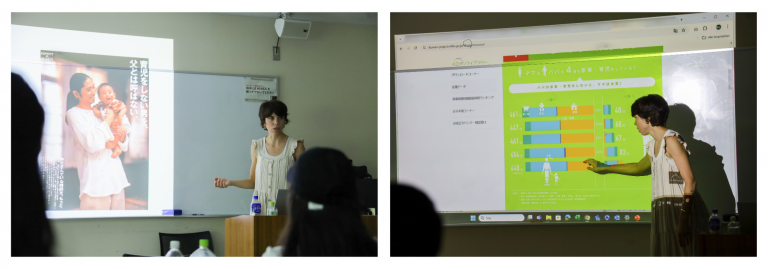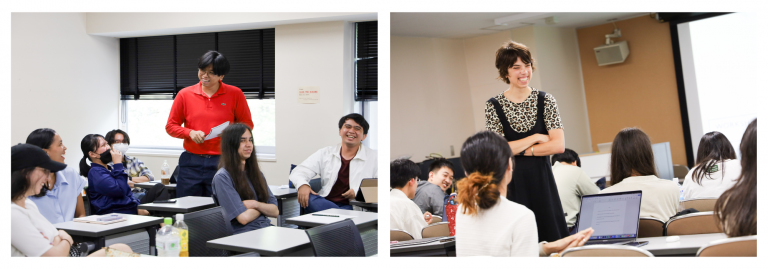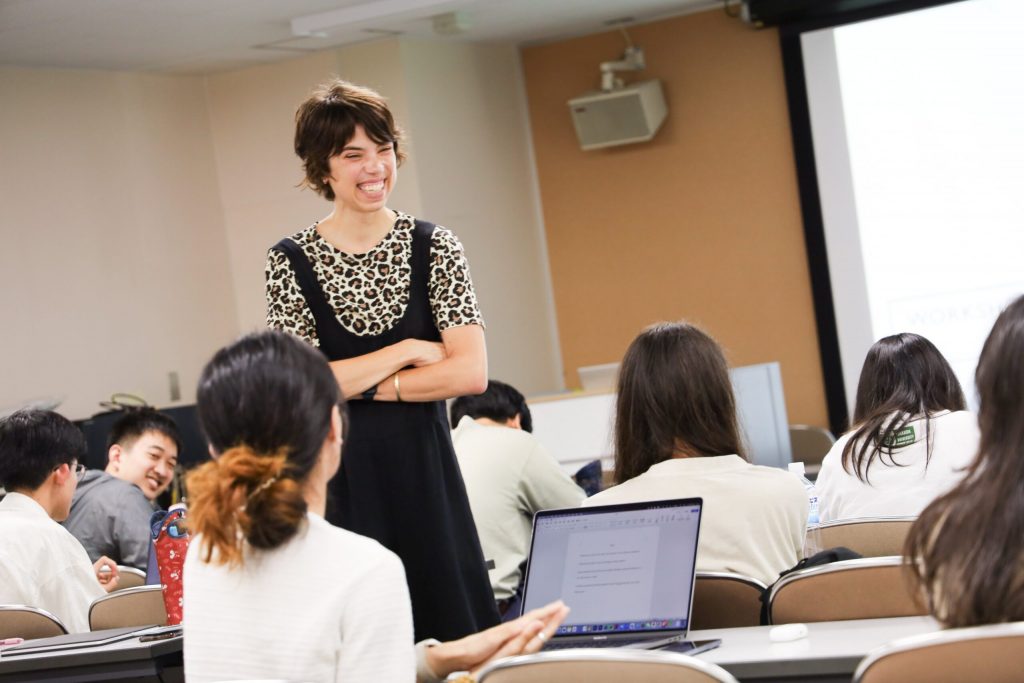In the Hokkaido Summer Institute (HSI) 2024, 17 participants from different parts of the world learned how to critically analyze the sociological aspects of family in the Family Practices in Contemporary Japan course. Facilitated by Dr. Bojana Yamamoto-Pavlasevic, a researcher on family sociology who is residing in Aarhus (Denmark), this offline course took place on the Sapporo Campus on July 16–19, 2024.

The course focused on the Japanese post-war family. “Japanese post-war society is interesting to look at because it is very different from its preceding era. After the war, Japan had an economic boom and more influence from the western countries, thus leading to a new kind of familial norm. It is important to be critical of the norms because what happens in private lives actually has a larger societal impact,” said Yamomoto-Pavlasevic.
Considering the vast nature of the discourse on family, the subjects in this course were narrowed down to gender roles and life trajectory, Japanese parenting practices, and family policy in Japan and its global context. The class looked at how they are practiced from various cultural products and case studies.

The course consisted mainly of lectures, and to summarize each session, students had prompt-based group discussions using newly acquired knowledge.
In this culturally diverse classroom, the students were also encouraged to solve the case studies by adding their own thoughts and to share their experiences. As it turned out, two students who are of the same nationality do not necessarily share the same lifestyle. Conversely, students who are from different continents share some resemblances in their upbringing. Detecting similarities and differences is a way to reflect on and reconsider stereotypes.

For many participants of Japanese descent, they took this opportunity to reflect on and rekindle with their culture. One, an American born and raised with Japanese parents, disclosed that she pursued this course to better understand her parents’ perspectives. Similarly, a student from the University of the Philippines, who has a Japanese mother, said that he wanted to get closer to his Japanese roots through learning.
The course attracted those who are curious about Japanese culture in general. A Chinese student from Northwestern University, who will soon enroll in an exchange program at a Japanese university, said that this course provides him with a basic grasp on Japanese culture.
Yamomoto-Pavlasevic hopes that, regardless of the students’ background, they will have developed an interest in sociology by the end of the course. “Being critical towards the society is not equal to being negative towards it. Sociology can make us understand and even help people. It is an active way to be in the world and happiness.”
To know more about Hokkaido Summer Institute, visit the website:
https://hokkaidosummerinstitute.oia.hokudai.ac.jp


